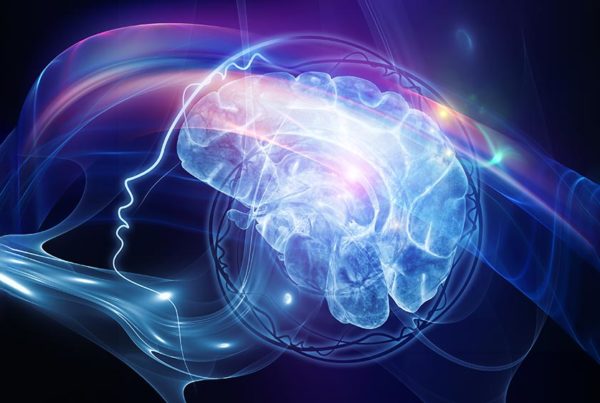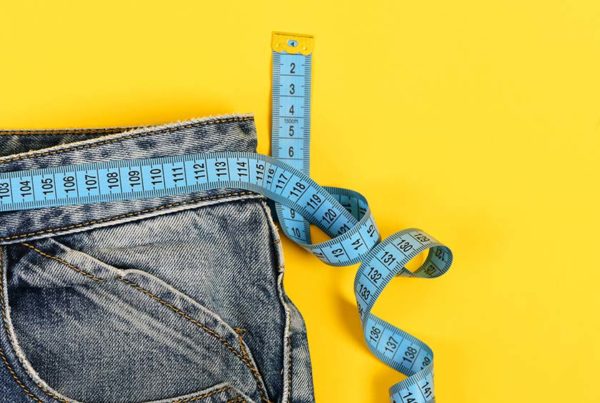By Coralee Thompson, M.D.
All women are at risk for developing breast cancer. If a diagnosis has been made most likely you’ll be undergoing one or more treatments that could include surgery, chemotherapy, hormone therapy, radiation and biological (drug) therapy. If you’re already past this stage of treatment, the information in this article can still be very helpful. Breast cancer therapies often come with significant side effects that can last a long time. These include nausea and other intestinal distress, hair loss, anemia, immune suppression, fatigue, skin changes, insomnia, depression and mood disorders and others. A variety of diet and lifestyle factors can help dramatically reduce or eliminate these signs and symptoms. In addition, recurrence of a cancer diagnosis is too common in many women, and these same diet and lifestyle factors can help reduce this risk.
Let’s consider the many aspects of breast cancer, from the true meaning of prevention and the risks, to the various medical treatments; and how diet and lifestyle can greatly improve your quality of life and reduce your future risk.
True Prevention vs. Screening
As with many other chronic diseases, advances in treatment of breast cancer far outpace true prevention. This is not because we don’t know how to prevent this and other cancers – we know a significant amount about it. Instead, it’s because mainstream medicine is reactive in their approach to breast cancer. This means they wait for breast cancer to be discovered, then treat it aggressively. True prevention means slowing or stopping the process by which cancer develops.
Part of the problem is that, in medicine, the word “prevention” is usually confused with screening. The main focus is breast cancer screening, which finds cancer in earlier stages. While this makes treatment more successful, patients are still left with the biological processes that first caused the cancer to potentially continue even after “successful” medical care. In addition, most breast cancer treatments come with significant side effects. Despite what your oncologists may tell you, there are a variety of natural and safe ways to combat these frequent serious side effects.
Breast Cancer Risks
In recent years, The Centers for Disease Control and Prevention has finally started to move off their mainstream stance to publicize the following preventive measures for breast cancer:
- Stay physically active.
- Avoid being overweight (overfat).
- Avoid hormone replacement therapy (including oral contraceptives).
- Limit alcohol intake.
In addition to these, several other factors increase your personal risk of breast cancer:
- Aging.
- Having no children or bearing children late.
- No history of breast feeding.
- Early menses and or late menopause.
- Family history of breast cancer.
- Rare genetic conditions and mutations.
- Radiation treatment to the chest.
- Having low vitamin D levels/poor sun exposure.
- Reduced intake of vegetables and fruits.
A Note on Genetics
While the issue of genetics comes up when breast cancer is discussed, the existence of cancer genes does not mean we are not without control. Probably all women, and even men, have genes for breast cancer. This obviously does not mean we all automatically get the disease. If our environment is not healthy – for example, proper food and nutrition, avoidance of chemicals and stress, etc., – our breast cancer gene may be switched on, allowing the process of cancer to slowly evolve. If we stay healthy, we may switch our cancer genes off.
If you have specific cancer genes – oncogenes – that have been identified, what you eat can turn on or turn off gene expression, even in one meal. Processed carbohydrates and sugar are the most dangerous when it comes to activating cancer genes. The HER2 oncogene that is often found in breast and prostate cancers can be activated by high levels of insulin (produced from eating refined carbohydrates including sugar) and suppressed by healthful fats such as those found in leafy greens and grass fed animals.
The primary focus of this article is that, for most women, quickly improving overall health can help combat the side effects of surgery, chemo, radiation and other therapies, and reduce the risk of future cancer. This is best accomplished through specific lifestyle factors listed below.
Diet & Nutrition
- Including at least 10 plant foods in your daily diet—dark leafy greens (spinach, kale, chard, parsley, cilantro), bright orange and yellow (carrots, squash, mangos), red plants (tomatoes, ripe red peppers, grapes, radish), florets (broccoli, cauliflower), pods (green beans, peas, lentils), purple skinned (blueberries, eggplant, cabbage) will provide you with abundant phytonutrients for many health promoting actions that can help offset cancer therapy side effects, and even reduce the ongoing process of cancer.
- Use certified organic foods to avoid pesticides and other common chemicals, many of which may be carcinogenic.
- It’s especially important to build your immune system with foods that allow your body to make its most powerful of antioxidants, glutathione. In addition to 10 serving of vegetables and fruits, eat these foods to help the body can make more glutathione:
- Include cruciferous vegetables – broccoli, kale, cabbage and others; the most potent is 2-3 day old broccoli sprouts (easy to grow yourself).
- Whey protein concentrate, which contains cysteine. (Avoid whey protein isolate and caseinates.) Cysteine is also important for liver detoxification of drugs and chemicals.
- Raw nuts (almonds, cashews) and raw seeds (sesame and flax), which contain tocotrienols and tocopherols.
- Organic lemon or lime skins (including the whites underneath) contain limonene, a phytonutrient that can help fight cancer cells. Consume just a small amount each day – use in cooking, salads or just eat plain.
- Many foods and spices, for example, have powerful cell saving properties; turmeric, cumin, ginger, garlic, chili, cinnamon, cloves and coconut.
- Meat, eggs and yogurt from grass fed animals contain essential fatty acids that may enhance chemotherapy while protecting normal cells. The live cultures in yogurt and sour cream will help restore the loss of healthy gut bacteria.
- Because digestion and intestinal function may be severely compromised, avoid foods that are difficult to digest even under normal circumstances, in particular, gluten-containing grains, especially wheat; even spelt, barley, oats and rye are not well tolerated by many.
- In addition to these specific recommendations, it’s important to avoid all processed food, especially sugar, artificial additives and preservatives. While diet and nutrition can be a complex subject, keep it simple. Eat real food in small quantities, frequently throughout the day.
- If you are overweight – overfat – even small amounts of weight loss can improve your surgical outcome, and other therapies. Increased body fat is associated with two important issues: chronic inflammation, an important trigger for cancer, and higher levels of the hormone insulin, which stores fat and promotes inflammation. An effective way to address both problems is to eliminate all refined carbohydrates (white flour, corn and other processed products, sugar and sugar-containing foods, soft drinks, etc.). Performing the “Two Week Test” previous to surgery may be the quickest way to prepare you if time is limited.
Dietary Supplements
-
- The issue of dietary supplements is complex. Many products can be counter- productive to building health because they come with risks just like drugs. Popular supplements of vitamin E, vitamin C and other should be avoided – rely on vegetables, fruits, raw nuts and seeds and other healthy food for these and other nutrients. Many popular dietary supplements can cause side effects that may counter your therapies; some may be helpful.
- Consider the following dietary supplements to help counter side effects of surgery, chemo and radiation:
- EPA from fish oil – can reduce inflammation, pain and other common side effects of various cancer treatments.
- L-glutamine – can help quickly restore normal intestinal function commonly impaired from cancer therapies (specifically helps absorb nutrients from food). The best dietary source of glutamine is red meat (cooked rare).
- While taking unnatural doses of nutrients, such as 100 IUs or more of vitamin E, and synthetic vitamins such as 500 mg or more of vitamin C can be harmful, consuming these and other antioxidant nutrients from foods in your diet is not.
- Supplementing with extra fiber – plain, sugar-free psyllium may be best – can help prepare your intestinal tract for the traumatic stress of surgery, chemo or other procedures associated with fasting and undernourishment
.
Other Lifestyle Factors
- Sleeping eight or more hours at night is a key feature for proper rest and recovery.
- Check your vitamin D levels as soon as possible. Adequate vitamin D is vital for recovery, avoidance of side effect of therapy and many studies show its importance in cancer prevention. Our primary source of vitamin D is the sun. Blood levels should be between 50–80 ng/mL (or 125–200 nM/L) year-round. (An accurate home test for vitamin D is also available: www.VitaminDCouncil.com.)
- Reducing stress – not an easy task with a new diagnosis of breast cancer. But reducing stress in all areas of your life will help reduce the high levels of the stress hormone cortisol, which not only can contribute to chronic disease but slow recovery. The quickest way to do this is by using “The Five Minute Power Break” daily.* Going for a very easy, short daily walk can also help, along with improving your heart, lung and muscle function to enhance healing.
Treatments of Breast Cancer
Medical treatment for breast cancer is individualized. Common types of breast cancer include ductal carcinoma (the cells that line the milk ducts) and lobular carcinoma (the cells found in breast lobules). Uncommon types include inflammatory breast cancer and Paget’s disease. Treatment options for these include surgery, chemotherapy and other biologics (specific types of drugs), hormonal therapy and radiation. Various genetic markers make tailoring the right mix of therapy more specific than ever.
Surgery
While surgery may range from lumpectomy to complete mastectomy and reconstruction, preparing for surgery and recovering from it involves several important actions – all listed above. The healthier you are going into surgery, the better you’ll recover.
Chemotherapy
The side effects of chemotherapy are usually far worse than many surgical procedures. The drugs used in chemotherapy are designed to be toxic to cancer cells usually by inhibiting cell division or causing cell suicide (apoptosis). The problem is that healthy cells in the body are subject to the same toxic effects, especially those that are dividing quickly; intestinal cells, skin and hair, and blood cells, leading to side effects. High doses of some dietary supplements – typically folic acid and many forms of antioxidants – can inhibit the chemotherapy effect on the cancerous cells. It’s very unlikely that eating these nutrients in real food will ever reach doses high enough to inhibit chemotherapy, and food doses of nutrients often work differently.
Hormonal Therapy
Also called anti-estrogen therapy and endocrine therapy, hormonal therapy has been used for over 30 years. With the discovery of estrogen receptor positive breast cancers came agents to block estrogen’s effects, including the drug tamoxifen. While blocking the effects of the woman’s estrogen is very important for treating estrogen-positive breast cancers, the healthy effects of estrogen in the rest of the body are also blocked. This produces common side effects such as hot flashes, vaginal changes, nausea and reduced libido. Less common, but serious side effects include blood clots and stroke, uterine cancer and cataracts. The body’s natural balance of other hormones is very important to maintain a better outcome of therapy, both short and long term. Two common hormone problems include elevations in cortisol (from stress) and insulin (by refined carbohydrates and sugar). Natural progesterone and fish oil are two supplements that can help reduce the unwanted side effects of hormone therapy, and increase the effectiveness of tamoxifen-type drugs against the breast cancer. Losing excess body fat is another way.
Biological therapies
While “biological” therapies are designed to be more specific to cancer cells by working with your body’s immune system, they are not without risks. This is where understanding the genetic type of cancer can be very helpful in using targeted drugs called biological agents. The inherent risks of these biologics are that some cancers quickly develop resistance, which can also happen with chemotherapy as well. In addition, heart cells may be more susceptible to damage, and there is a slight increased risk of brain metastasis. Because of the concern of cardiac involvement, following a truly aerobic exercise routine is paramount. As for specific foods to eat (other than already mentioned), the purple pigments in plants contain flavonoids, phytonutrients that potentiate some biologics such as herceptin.
Radiation
Although the technical advances of radiation therapy allow for smaller and more targeted treatment, cells other than cancerous ones are damaged. All of the healthy lifestyle activities mentioned above will improve the recovery from radiation therapy.
Antidepressants
For virtually all women with breast cancer, the mental and emotional stress can be significant. Whether real depression occurs in some women is a different topic and not discussed here, but the fact is that doctors often prescribe antidepressants. Reducing drugs and other chemical toxins from a woman’s body is an important part of restoring health to help improve cancer treatment outcomes and avoid a future cancer diagnosis. A recent study of women whose cancer was treated with tamoxifen therapy and who were also taking the antidepressant paroxetine demonstrates the potential problems of using these drugs: the patients increased their risk of death by 91%. A better understanding of breast cancer, the therapies and outcomes, diet and nutrition and lifestyle factors, especially as they pertain to stress is important for overall mental health.
If you are one of the many women with breast cancer, start improving your health today. You can not only help yourself by avoiding side effects of medical treatment, but also potentially prevent breast or other cancer recurrence. If you are one of many women without breast cancer, start improving your health today. You will not only help yourself through life, but also potentially prevent chronic diseases such as breast and other cancers.
Dr. Coralee Thompson is a family physician and co-author of Healthy Brains, Healthy Children. She writes and lectures extensively on many health care issues.








